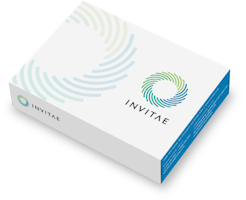
Invitae Glucose-6-Phosphate Dehydrogenase (G6PD) Deficiency Test
Test code: 06153 •
Test description
The Invitae Glucose-6-Phosphate Dehydrogenase Deficiency Test analyzes the glucose-6-phosphate dehydrogenase (G6PD) gene. The G6PD gene codes for an enzyme that is involved in carbohydrate production. Without enough of the enzyme, red blood cells are prematurely broken down and cannot repair themselves, resulting in hemolytic anemia. This test may be appropriate for jaundiced newborns, depending on their family history, ethnicity, and response to therapy. Patients with low levels of the G6PD enzyme on biochemical analysis can be confirmed with molecular testing.
Ordering information
Turnaround time:
10–21 calendar days (14 days on average)New York approved:
YesPreferred specimen:
3mL whole blood in a purple-top EDTA tube (K2EDTA or K3EDTA)Alternate specimens:
Saliva, buccal swab, and gDNA are also accepted.Learn more about specimen requirementsRequest a specimen collection kitClinical description and sensitivity
Clinical description:
G6PD deficiency is suspected in neonates with prolonged jaundice and in individuals with hemolytic anemia. Most individuals are asymptomatic. Exposure to certain drugs, illnesses, and foods can lead to the signs and symptoms of the disorder, which include fatigue, pale skin, fainting, shortness of breath, rapid heart rate, jaundice, red or brown urine, and an enlarged spleen. G6PD is most common in African, Mediterranean, and Southeast Asian populations.
G6PD is an X-linked recessive condition. Most individuals are asymptomatic. Symptomatic individuals are usually male, but female carriers can be symptomatic, too. Exposure to certain drugs (e.g., antimalarials, sulfonamides), illnesses, and foods (e.g., fava beans) can cause hemolytic anemia in affected individuals.
Assay information
Invitae is a College of American Pathologists (CAP)-accredited and Clinical Laboratory Improvement Amendments (CLIA)-certified clinical diagnostic laboratory performing full-gene sequencing and deletion/duplication analysis using next-generation sequencing technology (NGS).
Our sequence analysis covers clinically important regions of each gene, including coding exons and 10 to 20 base pairs of adjacent intronic sequence on either side of the coding exons in the transcript listed below, depending on the specific gene or test. In addition, the analysis covers select non-coding variants. Any variants that fall outside these regions are not analyzed. Any limitations in the analysis of these genes will be listed on the report. Contact client services with any questions.
Based on validation study results, this assay achieves >99% analytical sensitivity and specificity for single nucleotide variants, insertions and deletions <15bp in length, and exon-level deletions and duplications. Invitae's methods also detect insertions and deletions larger than 15bp but smaller than a full exon but sensitivity for these may be marginally reduced. Invitae’s deletion/duplication analysis determines copy number at a single exon resolution at virtually all targeted exons. However, in rare situations, single-exon copy number events may not be analyzed due to inherent sequence properties or isolated reduction in data quality. Certain types of variants, such as structural rearrangements (e.g. inversions, gene conversion events, translocations, etc.) or variants embedded in sequence with complex architecture (e.g. short tandem repeats or segmental duplications), may not be detected. Additionally, it may not be possible to fully resolve certain details about variants, such as mosaicism, phasing, or mapping ambiguity. Unless explicitly guaranteed, sequence changes in the promoter, non-coding exons, and other non-coding regions are not covered by this assay. Please consult the test definition on our website for details regarding regions or types of variants that are covered or excluded for this test. This report reflects the analysis of an extracted genomic DNA sample. In very rare cases, (circulating hematolymphoid neoplasm, bone marrow transplant, recent blood transfusion) the analyzed DNA may not represent the patient's constitutional genome.
You can customize this test by clicking genes to remove them.
Primary panel
Question about billing?
Find answers